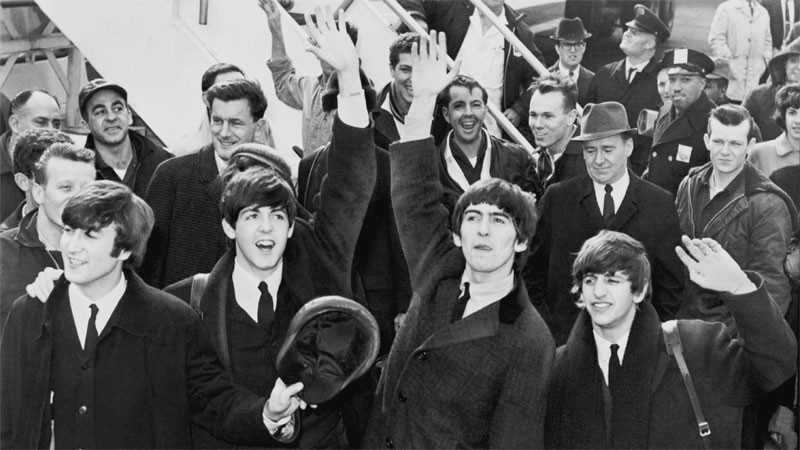1964 was a big year for music in America, mostly because of The Beatles. After making a huge splash on The Ed Sullivan Show, Beatlemania took hold of the country. The band was everywhere, especially all over Billboard's Hot 100, with 13 singles on the chart at the same time. So it's no wonder that The Beatles have been credited as changing the course of music. A new study says otherwise. *record skip*
A research team led by Matthias Mauch explored the evolution of popular music in the U.S. from 1960–2010 by analyzing the musical properties of more than 17,000 songs that appeared on the charts. What they found is that music underwent three stylistic sea changes around 1964, 1983 and 1991 (from rock with soul roots to new wave to hip hop) and, while The Beatles certainly were influential in the first, they didn't exactly start a musical revolution:
"Around 1964, many styles were changing in frequency...Their evolutionary trajectories were all established before 1964, implying that, whereas the British may have contributed to this revolution, they could not have been entirely responsible for it...Even if the British did not initiate the American revolution of 1964, they did exploit it and, to the degree that they were imitated by other artists, fanned its flames."
We have come to believe that The Beatles single-handedly revolutionized popular music, which is apparently untrue. We also tend to under-appreciate the power of rap and hip hop. Mauch and his fellow researchers posit that the 1991 shift into those genres is "the single most important event that has shaped the musical structure of the American charts" since 1960. That would mean that N.W.A. has more sway than The Beatles! Hold on; having an aha moment.



